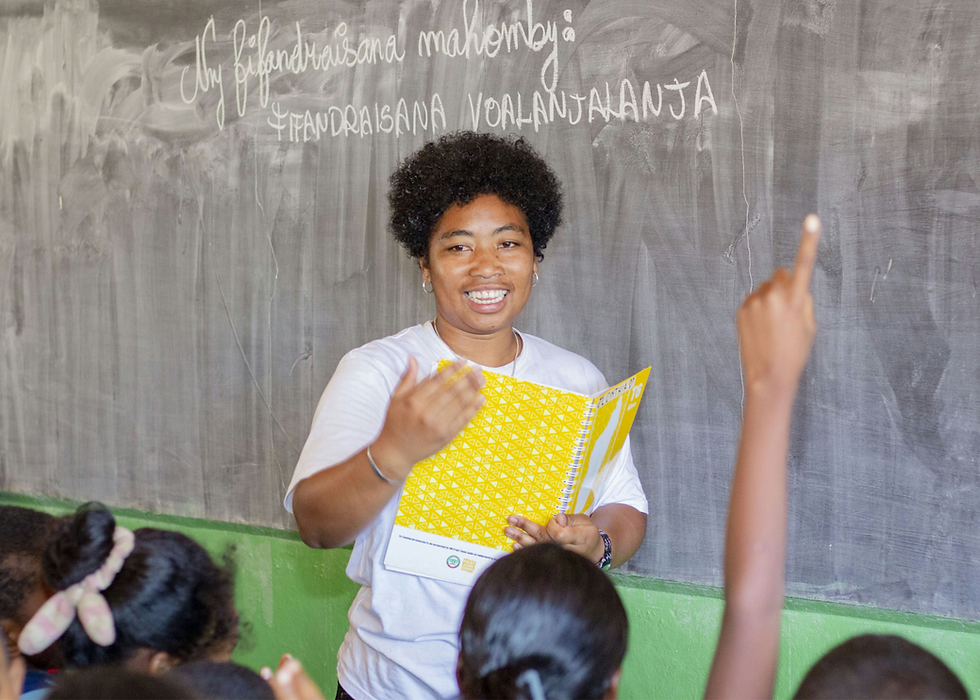Forging trust between health care providers and adolescents
- Projet Jeune Leader

- Nov 17, 2019
- 2 min read
Updated: Oct 23, 2021
PJL Educators Naina and Sitraka have just tacked up a flip-chart paper on the blackboard. It reads: "Why are youth afraid of approaching healthcare workers about sexual health?”
Students quickly pass small slips of paper to the front of the room with their answers to the question. Read aloud, one-by-one, the anonymous comments overwhelmingly reveal that students are afraid of doctors and the local hospital, are shy to ask questions, and do not feel they can trust healthcare workers.
Over the next hour, Naina and Sitraka’s mission is to break down some of these barriers—and to do so, they are joined by a doctor from the community’s health center.
This session is part of our “3eme [ninth grade] program,” through which Projet Jeune Leader gathers all students in their last year of middle school to more closely examine the challenges adolescents face in seeking sexual-reproductive health care - namely, fear of judgment and shyness.
This program was born from an extensive needs assessment on Malagasy rural adolescents’ attitudes towards local health workers conducted by Projet Jeune Leader in 2016. This study revealed a need for more targeted programs to increase rural clinics' accessibility for adolescents.
The following year, Projet Jeune Leader began training clinic-based providers on how to counsel young adolescents on sexual and reproductive health issues. In a complementary program, PJL brought community healthcare providers to schools to co-teach a curriculum with our Educators. The goal of this program is for students to realize that doctors should not be viewed as intimidating, and for students to gain the confidence and skills needed to effectively seek health care.
This is why, on that Tuesday afternoon in May, our partner doctor joined Sitraka and Naina at school.
Following an initial discussion, the Educators and doctor act out common scenarios adolescents experience when going to the hospital. They then project a short film exploring a scenario where a student thinks she is pregnant and needs to go to the hospital. Based on the skits and the film, the Educators and doctor facilitate a focused and productive discussion about how to effectively access services at rural clinics.
Students then break into small groups and discuss how to help a friend, “Andry,” who needs to talk to the doctor about a reproductive health concern, writing or drawing their advice on a poster. This is one method we use to assess the effectiveness of the training. At the end of the session, the Educators have collected a pile of posters displaying messages such as “Do not be shy or scared, ask questions, talk to the midwife or doctor, listen closely, be honest.”
It's immediately obvious students are already experiencing positive effects of the program: As they linger out after the end of the class, they share their personal stories with the doctor and ask for advice.
To truly promote adolescents' long-term sexual and reproductive health we need strong partnerships with local health care workers. That's why, over the course of the month, a similar session unfolded across all sixteen of our rural and urban partner schools with their respective PJL Educators and partner healthcare providers.
Through these partnerships, we are proud to help thousands of students healthfully transition from middle to high school, access local health resources, and receive higher quality care at community institutions.













